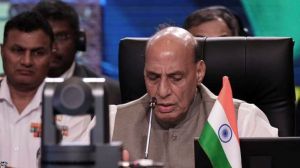Raising their stock among employees
To retain some of the best talents,companies often give stock options to their employees,which they can encash at some point of time.
To retain some of the best talents,companies often give stock options to their employees,which they can encash at some point of time. The software sector was one of the pioneers to introduce Employees Stock Options (Esops) in the 90s and,later,a host of sectors,such as financial services,consumer goods and manufacturing,followed suit.
In recent times,accounting implications relating to Esops have undergone substantial changes. Stock options can come in various forms,such as Esops,Employee Stock Purchase Plan (EPP),Restricted Stock Awards (RSA) and Restricted Stock Unit (RSU). A majority of companies continue to follow the conventional mode of incentivising their employees through Esops.
A recent survey conducted by consulting firm KPMG shows that Esops are considered by companies as an incentive tool,which enhances productivity,motivates employees and increases employees’ interest in the company’s overall performance.
The survey,conducted in 350 listed domestic and multinational companies,found that 203 companies had either implemented or were planning to implement Esops. Of these,95% said that their plans were linked to equity shares; the rest linked them to warrants and other securities. Indian companies continue to prefer simple stock options to other forms of equity plans. A time-based vesting schedule of 3-4 years with annualised vesting is the most popular option.
Parizad Sirwalla,executive director of tax and regulatory services,and Surendra Pareek,director of tax and regulatory services,KPMG,who conducted the survey,say that the economic crises has not led to any significant changes in the structure of a majority of Esop plans. However,there has been a debate on the need for an increase in transparency and disclosure of equity plans. Scrutiny by shareholders and government has focused on the use of performance measures attached to awards, Sirwalla said.
Taxation of Esops,a major point of concern for the employees,has witnessed a continuous change as well. Under current regulations,Esops benefits are taxable as perquisites or salary income in the hands of the employees.
The perquisite value is determined as a difference between the fair market value (FMV) of the share on the date of exercise and the exercise price. However,there are specific valuation rules prescribed for listed and unlisted companies. The FMV of shares of a company not listed on an Indian stock exchange needs to be determined by the category-I merchant banker registered with the Securities and Exchange Board of India (Sebi). Under the proposed Direct Taxes Code Bill,2010,the tax treatment on Esops is similar.
In fact,in the past till March 1999,there were no specific provisions for taxing Esop benefits. They were taxed as a perquisite in the hands of the employees on the difference between the FMV of the stock on the date of vesting of the options and the exercise price. Between April 2007 and March 2009,the employer was required to pay fringe benefit tax on the benefit derived by employee from Esops. The employer,however,was allowed to recover the FBT from the employees.
Currently,the incremental gains,which is the difference between sale and the FMV on the date of exercise,on the sale of shares is considered a capital gain for the employee. The capital gains tax treatment further depends on the holding period and whether the shares are sold on a recognised stock exchange.






- 01
- 02
- 03
- 04
- 05

























